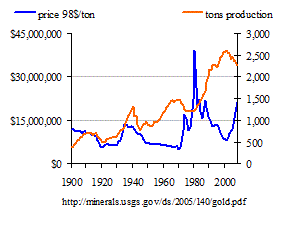EdwardBaiamonte
Platinum Member
- Nov 23, 2011
- 34,612
- 2,153
- 1,100
- Thread starter
- #21
When there was a gold standard the government artificially fixed the price of the gold to control its effect on the paper currency.
as a liberal you miss the point completely!! A gold standard is not really a gold standard if politicians can manipulate it.
Read OP for comprehension. Greece has no control of the amount of money in circulation. It can't print money to pay its debts. It really has to pay them or have Europe pay them instead. Either way the Euro gold standard puts an end to irresponsible liberal welfare state behavior.

